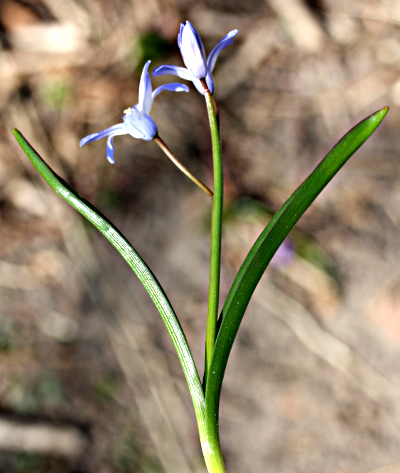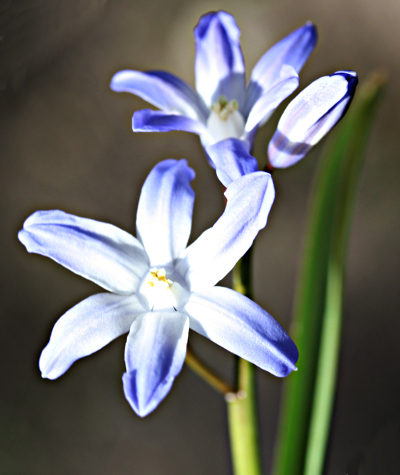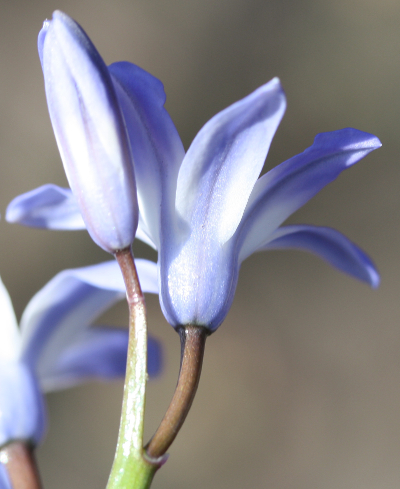Hybrid glory-of-the-snow |



Habit, flowers and bud of the hybrid glory-of-the-snow
| Scilla siehei × luciliae: | |
| Blooming period: | March–April |
| Height: | 5–10 cm |
| Flowers: | bisexual, actinomorphic, mostly blue with white center, conspicuous, Ø up to 25 mm, stamens: 6, styles: 1 |
| Tepals: | 6, blue |
| Leaves: | 2, basal, parallel-veined |
Plant perennial, herbaceous, with an approximately 3 cm thick bulb, surrounded by a brown tunic.
Stems upright, incl. flower scape about 10 cm high.
Leaves 2, basal, 20 mm wide, about as long as the stalk.
The stalks bears a single stalked flower or it has a terminal, a few cm long flower scape, with 2–3 mostly nodding flowers. Pedicels at the base with a very small bract.
The up to 25 mm wide, flat disk-shaped flowers possess int the center of the flower a sometimes vaguely recognizable or blurred delineated white "eye".
The 6 identically looking tepals are fused urn-shaped at the base and so narrow, that they do not overlap at the base or just a little bit.
At the top of the corolla tube arise 6 incurved stamens with yellow anthers, whose filaments are widened and cover the ovary.
After insect pollination (bees, bumblebees, wasps) are formed from the superior ovary 3-part, many-seeded, rounded capsule fruits.
The seeds have a nutrient-rich appendage (elaiosome) and are spread by ants. Propagation also by formation of daughter bulbs. Plants poisonous, especially the bulbs!
Scilla siehei × luciliae is a naturally arising bastard of Scilla siehei and S. luciliae.| Floral formula: |
| * [P(3+3) A3+3] G(3) superior |
Occurrence:
Roadsides,
often near human settlements. Prefers slightly moist, nutrient-rich
soils and sunny to semi-shady locations.
Distribution:
Originally
only in Turkey. In Central Europe garden escape.